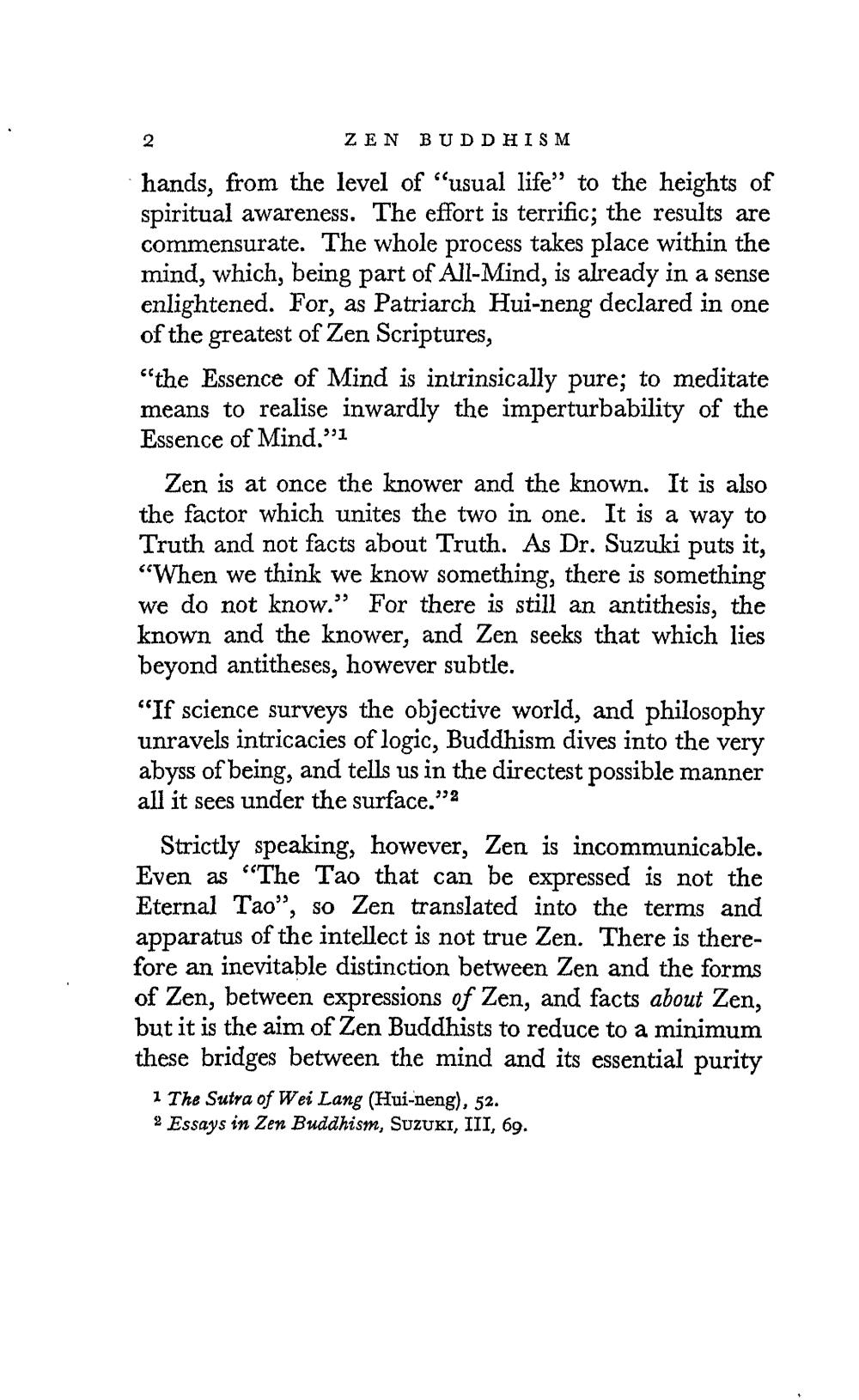________________
ZEN BUDDHISM
hands, from the level of "usual life" to the heights of spiritual awareness. The effort is terrific; the results are commensurate. The whole process takes place within the mind, which, being part of All-Mind, is already in a sense enlightened. For, as Patriarch Hui-neng declared in one of the greatest of Zen Scriptures,
2
"the Essence of Mind is intrinsically pure; to meditate means to realise inwardly the imperturbability of the Essence of Mind."1
Zen is at once the knower and the known. It is also the factor which unites the two in one. It is a way to Truth and not facts about Truth. As Dr. Suzuki puts it, "When we think we know something, there is something we do not know." For there is still an antithesis, the known and the knower, and Zen seeks that which lies beyond antitheses, however subtle.
"If science surveys the objective world, and philosophy unravels intricacies of logic, Buddhism dives into the very abyss of being, and tells us in the directest possible manner all it sees under the surface."2
Strictly speaking, however, Zen is incommunicable. Even as "The Tao that can be expressed is not the Eternal Tao", so Zen translated into the terms and apparatus of the intellect is not true Zen. There is therefore an inevitable distinction between Zen and the forms of Zen, between expressions of Zen, and facts about Zen, but it is the aim of Zen Buddhists to reduce to a minimum these bridges between the mind and its essential purity
1 The Sutra of Wei Lang (Hui-neng), 52.
2 Essays in Zen Buddhism, SUZUKI, III, 69.




